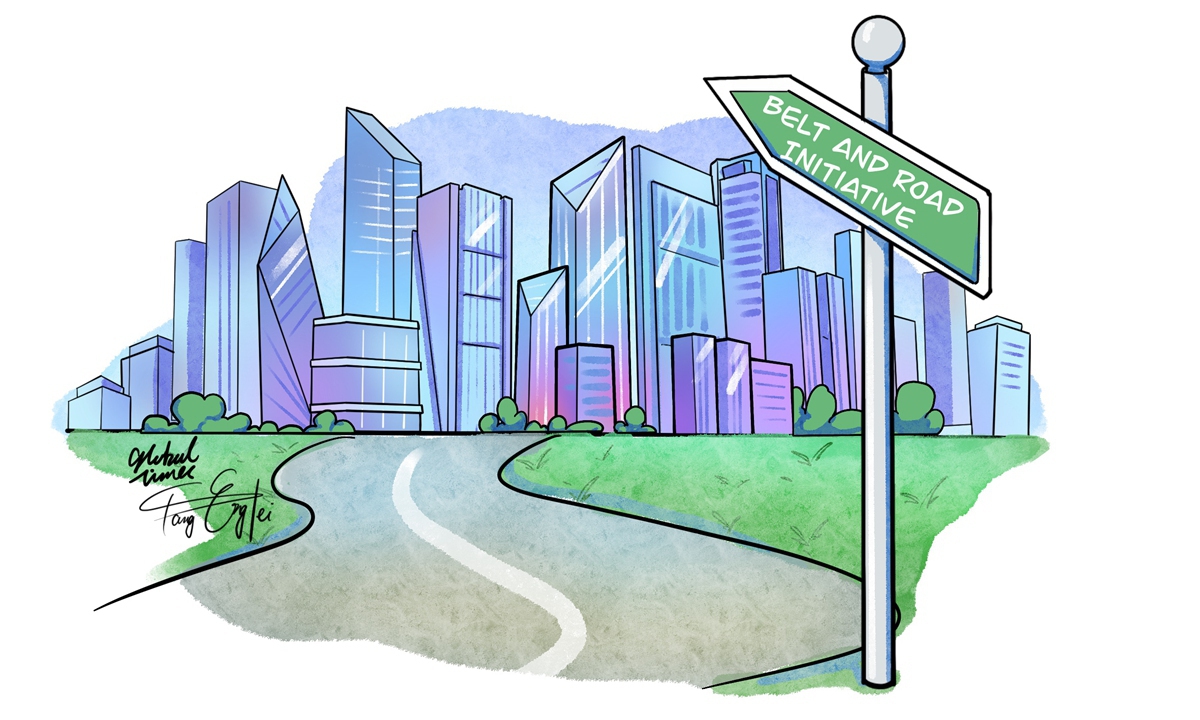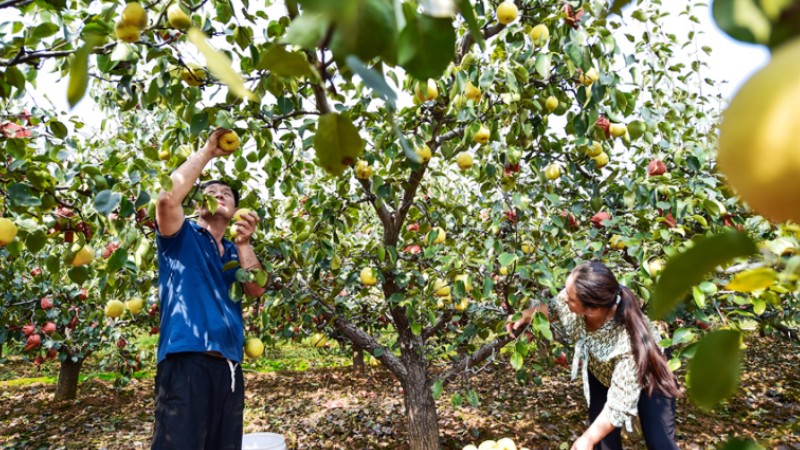Xi to attend 3rd Belt and Road Forum held at key juncture of initiative

Illustration: Tang Tengfei/Global Times
Chinese President Xi Jinping will attend the third Belt and Road Forum (BRF) for International Cooperation to be held from October 17 to 18 in Beijing, the Chinese Foreign Ministry announced on Wednesday, officially ushering in what Chinese officials have described as one of the most important multilateral diplomatic events in China this year.
Drawing representatives from over 130 countries and 30 international organizations, the BRF is expected to highlight remarkable achievements that have been made in joint construction of the Belt and Road Initiative (BRI) - a grand vision for global connectivity that has turned into reality - over the past decade, and offer a crucial platform for countries and organizations to discuss high-quality BRI cooperation in a wide range of areas from infrastructure to green development, officials and experts said.
Coming at a time when the world is facing a bunch of geopolitical and economic challenges, the BRF will help inject certainty into an uncertain world and offer fresh impetus for global development, as the forum is expected to achieve major outcomes for strengthening international cooperation, foreign and Chinese experts noted. The forum will also put on vivid display the great enthusiasm and confidence in the BRI as well as China's unwavering commitment to opening-up and global cooperation, they said.
Crucial platform
Xi will attend the opening ceremony of the forum and deliver a keynote speech, and hold a welcoming banquet and bilateral events for the guests attending the forum, Foreign Ministry spokesperson Hua Chunying announced on Wednesday.
The announcement also confirmed the dates for the BRF. Meanwhile, the "BRF vibe" is becoming increasingly palpable in Beijing. Posters for the forum can be seen on many streets across the Chinese capital on Wednesday. The official website for the third BRF also went online on Wednesday, ready to release information about the forum to help people around the world learn more about the achievements of the BRI made over the past decade.
In its third edition, the BRF has become a crucial multilateral platform for countries and regions participating in the joint construction of the BRI to take stock on the progress and draw plans for future cooperation. The second BRF was held in 2019 before the COVID-19 pandemic. This year's BRF carries extra significance as it also marks the 10th anniversary of the proposal of BRI.
With the theme "High-quality Belt and Road Cooperation: Together for Common Development and Prosperity," this year's BRF is expected to draw representatives from more than 130 countries and over 30 international organizations, according to Chinese officials. High-level meetings at the BRF will focus on many areas of cooperation, including connectivity, green development and the digital economy. Trade, people-to-people exchanges, anti-corruption, local cooperation and ocean cooperation will also be main themes at the BRF.
Participation in the forum has greatly exceeded expectations, which shows that all parties have attached great importance to it; the current complex global geo-economic situation also means that the forum will draw attention from around the world, said analysts.
The BRF, which focuses on global cooperation, will take place as the world is facing a slew of geopolitical and economic challenges ranging from conflicts in Europe and the Middle East to a sluggish global economy.
"Given the extraordinary challenges to all of mankind resulting from geopolitical divisions that presently threaten to separate the world into antagonistic blocs, I am sure that the [forum] will expand that spirit of a single humanity, which will be united by enjoying the benefits of shared prosperity and a sense of belonging indeed to the one human species," Helga Zepp-LaRouche, founder of Germany-based political and economic think tank the Schiller Institute, told the Global Times on Wednesday.
Zepp-LaRouche said that the BRI not only has become the greatest infrastructure project in history, but also has started to lay the concrete indispensable economic foundation for building a global community with a shared future.
Such a sentiment for the BRI and high expectations for the BRF are shared by all participating countries and regions.
"The forum is not just a forum; it's a way to showcase incredible stories of success which has generated tangible benefits for participating countries including increased investments, improved trade, job creation, poverty alleviation and people's livelihood improvement over the past 10 years," Maya Majueran, director of Belt and Road Initiative Sri Lanka, a Sri Lanka-based organization that specializes in BRI cooperation, told the Global Times on Tuesday.
Unwavering confidence
While some Western officials and media outlets have in recent years spared no effort to discredit the tangible achievements of the BRI made over the past decade, with some countries introducing the so-called alternatives to the China-proposed initiative, great enthusiasm and expectations from countries and regions and international institutions for the BRF put on vivid display the growing popularity of and unwavering confidence in the BRI, Chinese and foreign experts noted.
The forum, to focus on global cooperation as well as China's unwavering commitment to high-level opening-up and the path to Chinese modernization, will highlight various countries' confidence in the BRI, China, the future development of globalization and the prospects of win-win benefits from cooperating with China, Chinese analysts said.
Such confidence comes from a decade of remarkable achievements made in joint construction of the BRI. Among the major achievements, over the past 10 years, more than 150 countries and 30 international organizations have joined the big "BRI family," China's trade with countries participating in the BRI grew by 6.4 percent annually between 2013 and 2022 to reach $19.1 trillion, Chinese officials said at a press conference on Tuesday when releasing a white paper on the BRI.
"The BRI is by far the largest engine of improving global connectivity in all fields of infrastructure: By building land routes through corridors and rail lines, by expanding maritime connections, by multiplying air connections and building up cyberspace, it grows into a world network that serves all the peoples of the world, creating better conditions for cooperation," said Zepp-LaRouche.
Amid the rapidly growing popularity and success of the BRI, some Western countries have been seeking to both discredit the initiative and propose the so-called alternatives to the BRI. The US' "Build Back Better World" and the EU's "Global Gateway" project, for example, have been widely interpreted by Western media as "alternatives" to the BRI. However, despite such smearing, the BRI remains vastly popular.
Another major feature of the BRI is inclusiveness, which means it is also open for all countries and regions to participate, experts noted.
"The BRI is open and inclusive and it welcomes cooperation with similar arrangements from around the world. This is a global initiative, whatever they propose, including the US and the EU, we should cooperate with them," He Weiwen, senior fellow of the Center for China and Globalization, told the Global Times on Wednesday.
Photos
Related Stories
Copyright © 2023 People's Daily Online. All Rights Reserved.









